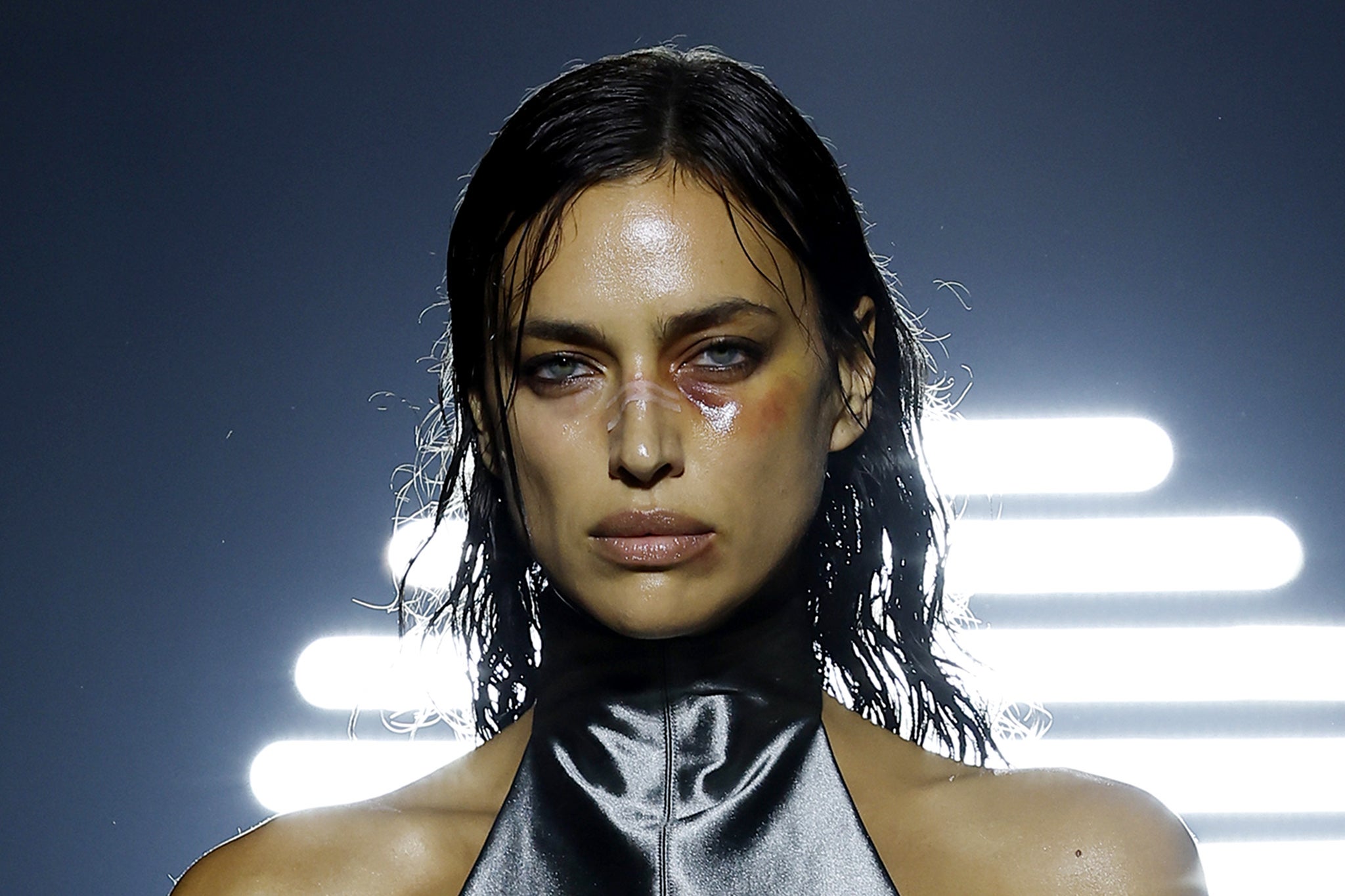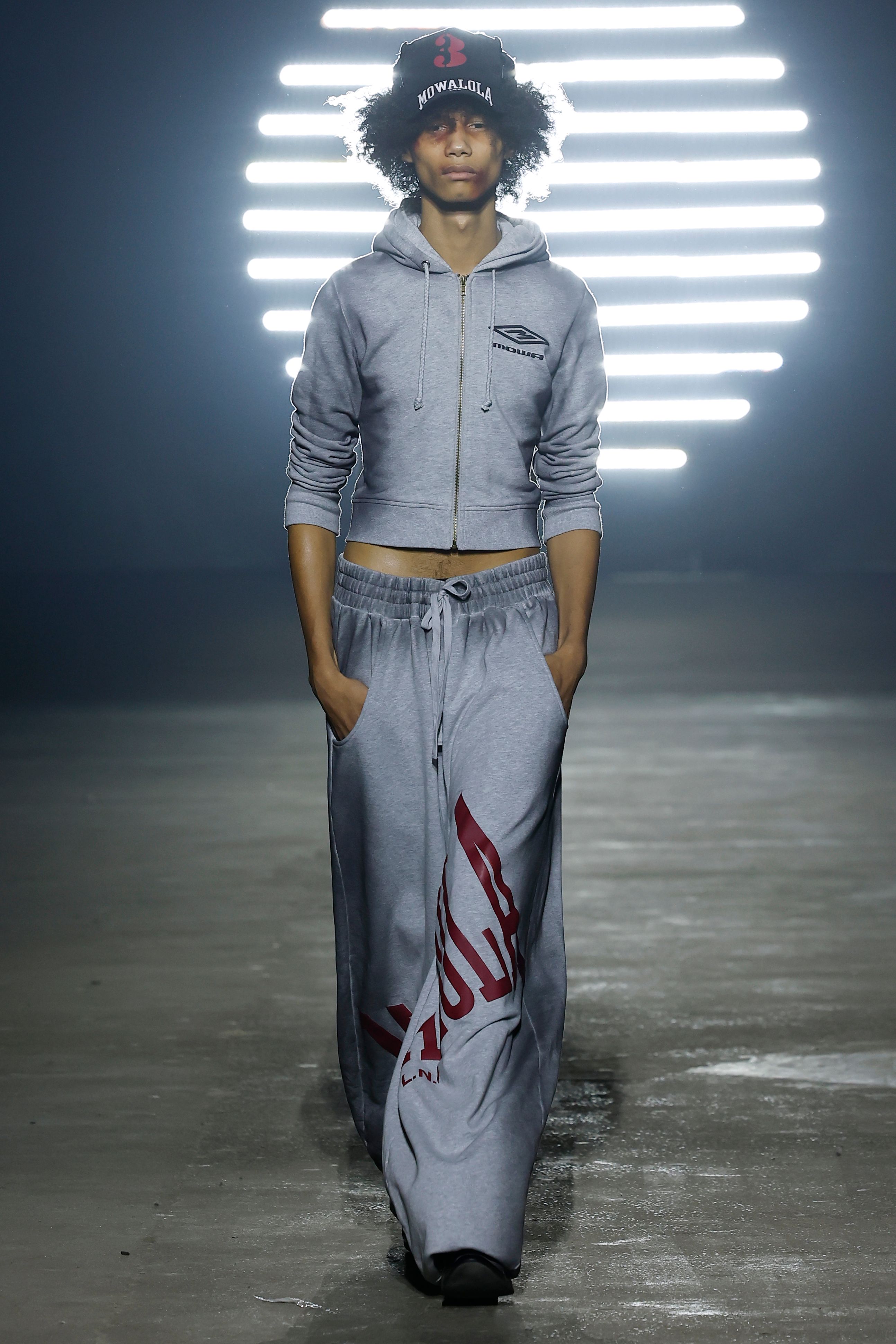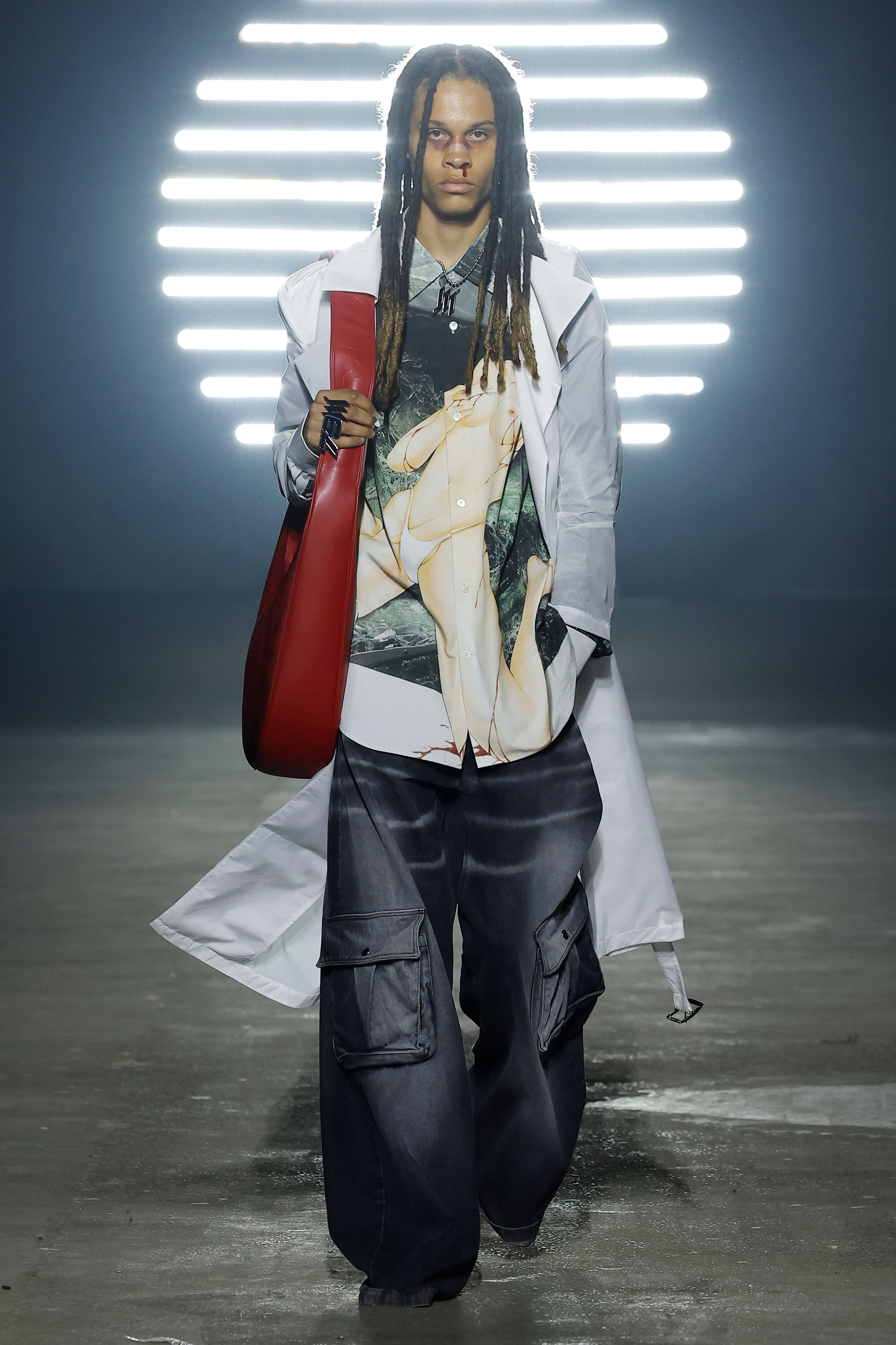Fashion show accused of ‘glamourising domestic abuse’ as models sport fake injuries
Irina Shayk among models sporting black eyes and bruises on London Fashion Week show by designer Mowalola Ogunlesi

Your support helps us to tell the story
From reproductive rights to climate change to Big Tech, The Independent is on the ground when the story is developing. Whether it's investigating the financials of Elon Musk's pro-Trump PAC or producing our latest documentary, 'The A Word', which shines a light on the American women fighting for reproductive rights, we know how important it is to parse out the facts from the messaging.
At such a critical moment in US history, we need reporters on the ground. Your donation allows us to keep sending journalists to speak to both sides of the story.
The Independent is trusted by Americans across the entire political spectrum. And unlike many other quality news outlets, we choose not to lock Americans out of our reporting and analysis with paywalls. We believe quality journalism should be available to everyone, paid for by those who can afford it.
Your support makes all the difference.A London Fashion Week show has been accused of “glamourising domestic violence” for showing ‘battered’ models on the catwalk.
Russian model Irina Shayk wore a long silver halter neck gown and sported a fake black eye whilst others had make-up replicating bruises and cuts at event by designer Mowalola Ogunlesi.
One model, who sported a shirt featuring a nude woman with baggy cargo jeans, strutted with a bloody nose and two black eyes during the show in Canning Town, east London on Friday. A third model fashioned a grey tracksuit paired with a black baseball cap above her face, which was covered in purple and red bruising.

Domestic abuse charities Refuge and Women’s Aid are among those criticising the event.
Farah Nazeer, chief executive at Women’s Aid said: “A black eye is not a fashion accessory. Without being clear whether it was being used to raise awareness of domestic abuse, the model and designer run the risk of trivialising domestic abuse and the impact it has on women and children.”
Campaigner Aisha Ali-Khan said: “Giving supermodels a fake black eye is absolutely reprehensible. What an insult to victims of #domesticviolence seeing injuries like this glamorised for public consumption.”
Refuge posted on Twitter: “There is nothing glamourous about violence against women and girls. Sensationalising physical violence as a fashion statement is extremely alarming.”

Nazeer from Women’s Aid added: “Millions of people will be watching London Fashion Week shows and anything that glamourises domestic abuse is damaging and offensive to survivors.”
The brand Mowalola shared the collection on Twitter, posting: “We run from pain but we need pain to survive.”
British Vogue praised the designer as “one of the capital’s most progressive directors” and described the spring/summer collection as ‘tongue in cheek’.
Ms Ogunlesi had told Vogue the collection was inspired by watching David Cronenberg’s Crash for the first time. The 1996 erotic film tells the story of people who fetishise people seriously injured in car crashes.
“I was really excited by the fetishization of pain through crashing,” she told Vogue on Friday.
The designer has also sparked controversy with mini-skirts designs. She featured three garments designed with the flags of the UK, Saudi Arabia and Japan.
But Saudi Arabia’s flag had the Islamic Shahada, a sacred muslim text, written across it rendering the design blasphemous as the Islamic faith doesn’t allow the reproduction of religious imagery and texts. After realising the offence caused by her design, Mowalola removed the design from her collection.
The Independent has contacted Mowalola for a comment.



Join our commenting forum
Join thought-provoking conversations, follow other Independent readers and see their replies
Comments